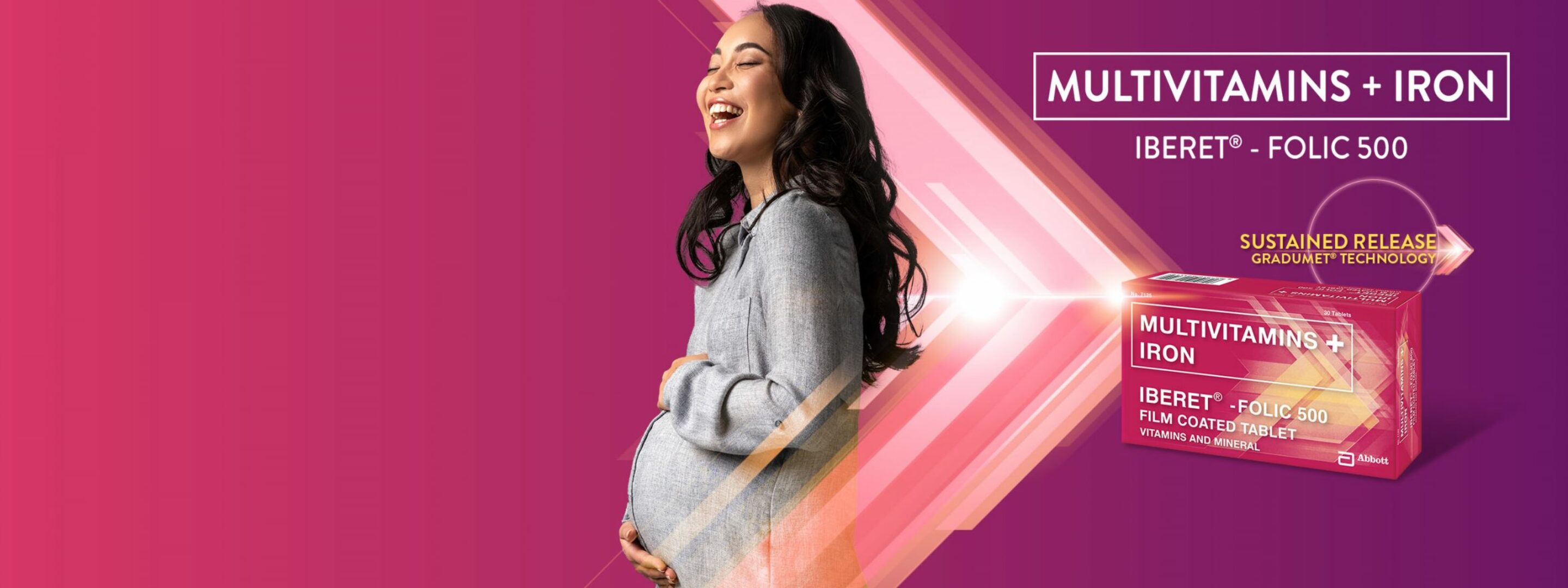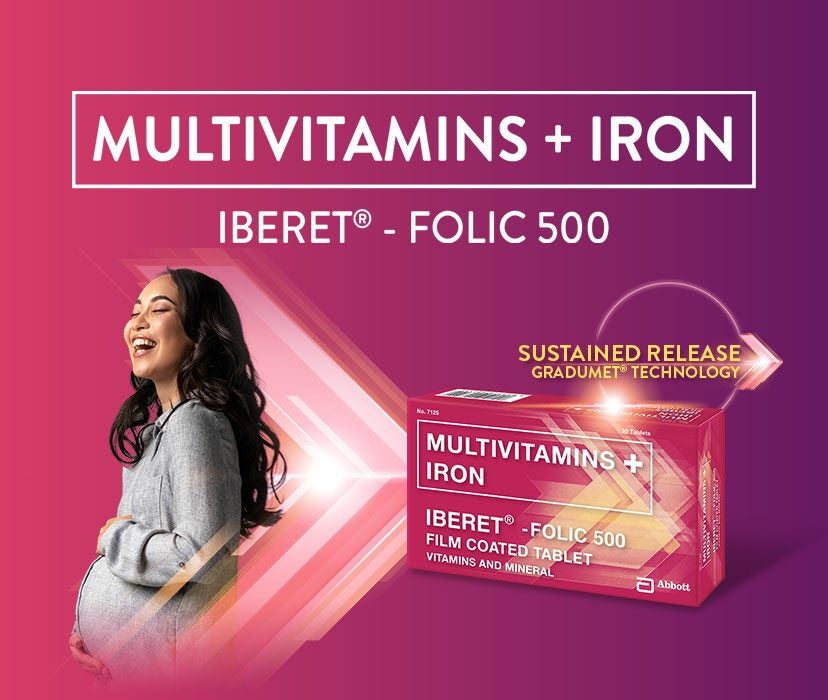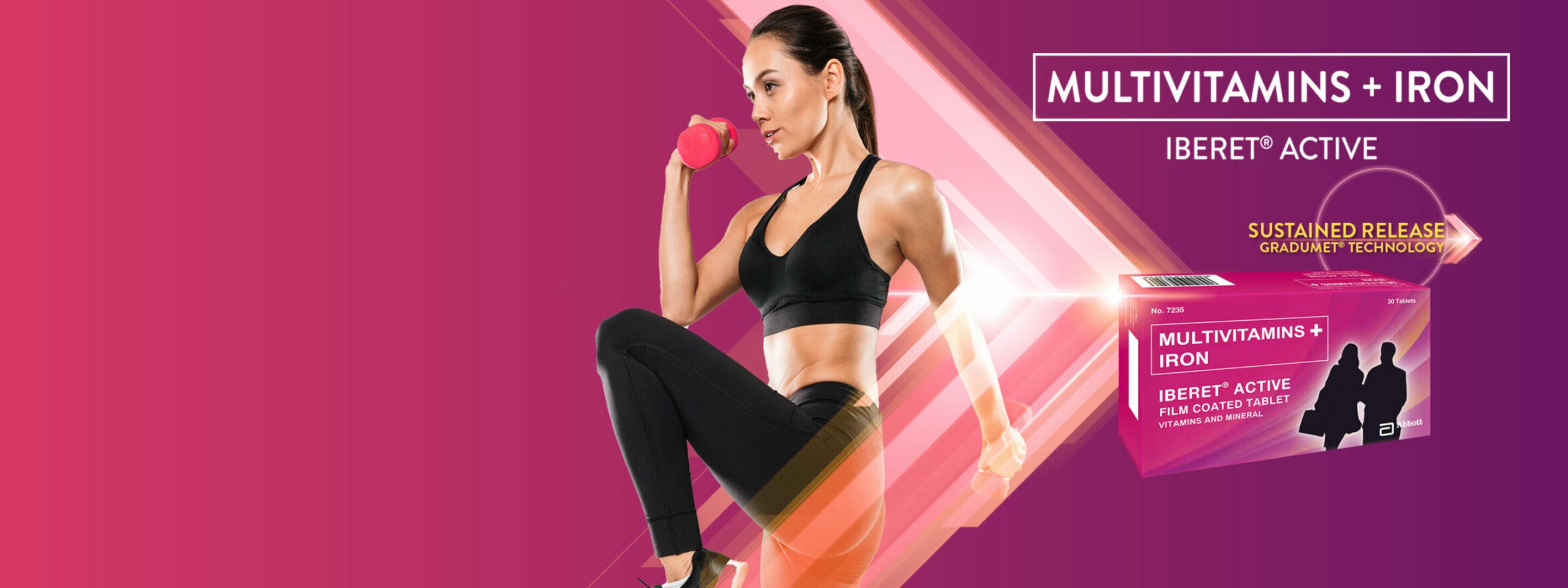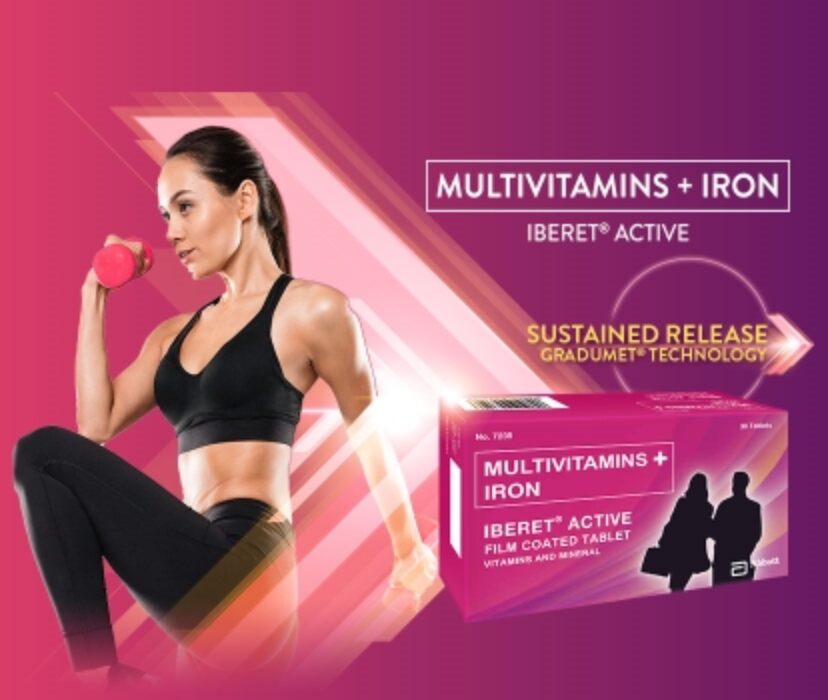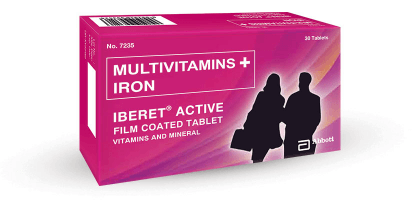
What is Iron Deficiency Anemia (IDA)5?
Iron-deficiency anemia (IDA) is a common type of anemia that occurs if you do not have enough iron in your body. There are sometimes no signs or symptoms when experiencing mild or moderate iron-deficiency anemia (IDA), however, a more severe form may cause fatigue or tiredness, shortness of breath, or chest pain.
ASSESS YOUR RISK OF IRON DEFICIENCY ANEMIA
This tool* helps you discover if you are at risk of having iron deficiency in four easy steps
Step 1 – Tell us about yourself
Step 2 – Tell us more about you
Step 3 – Tell us your symptoms
Step 4 – View your results
*This tool is for informational purposes and is not intended to be a substitute for professional medical advice, diagnosis, or treatment. Always seek the advice of your physician or other qualified health providers with any questions you may have regarding a medical condition.
Step 1
Step 2
Step 3
Step 4
Tell us about your lifestyle.
Select all that apply
Planning for a baby
Sorry, this selection is not valid

Because you selected
‘Planning for a baby’
‘Planning for a baby’
How old are you?
15 to 25 years old
25 to 35 years old
35 years old and above
Not planning for a baby
Sorry, this selection is not valid
Pregnant
Sorry, this selection is not valid

Because you selected
‘Planning for a baby’
‘Planning for a baby’
Which trimester are you in?
1st Trimester
(Week 1 - 12)
2nd Trimester
(Week 13 - 26)
3rd Trimester
(Week 27 onwards)
Not Pregnant
Sorry, this selection is not valid
Active/Into Fitness
Sorry, this selection is not valid

Because you selected
‘Active/Into Fitness’
‘Active/Into Fitness’
Which profile are you in?
Easy-going
Moderate
Intense
Career Woman
Sorry, this selection is not valid

Because you selected
‘Career Woman’
‘Career Woman’
What are your working hours like?
Regular hours
9 a.m. - 6 p.m.
Long and irregular hours
Timing not fixed
On a specific diet
Sorry, this selection is not valid

Because you selected
‘On a specific diet1’
‘On a specific diet1’
Which are you in?
I am vegan
I am vegetarian
I avoid eating red meat
I count my calories
I skip meals
Not on a specific diet
Sorry, this selection is not valid
With monthly period problems
Sorry, this selection is not valid

Because you selected
‘With monthly period problems’
‘With monthly period problems’
I am experiencing
Heavy menstrual bleeding (HMB)
Fibroids
Irreugular/missed periods
With normal monthly periods
Sorry, this selection is not valid
Loading...
Tell us your symptoms
Select all that apply
Dizziness
Hairfall
Poor concentration
Cold hands & feet
Irregular heartbeat
Pale skin
Weakness
Tiredness
I don’t have any of these symptoms
Based on your profile and symptoms, you could be
AT RISK
of having Iron Deficiency Anemia (IDA)
Please seek further medical advice from your doctor
Based on your profile and symptoms, you currently may
NOT BE AT RISK
of getting Iron Deficiency Anemia (IDA).
However, do continue to monitor your health closely or seek further assessment with your doctor.
The result generated is currently
INCONCLUSIVE
For further assessment, please seek medical advice from your doctor.
Plan early when planning a baby
Prepare yourself by taking a folic acid supplement for at least a month before becoming pregnant, and during the first three months of pregnancy. Please consult your doctor for more advice.
It’s still early days but keep track of your iron requirements6
You may not need as much iron during the first trimester because menstruation stops. However, please consult your doctor for advice.
Your body demands more iron in the second trimester6
You will need more iron starting from this trimester as oxygen consumption increases for both you and your growing fetus.
Your body needs even more iron in the third trimester6
As your pregnancy progresses, iron requirements will continue to rise steadily in proportion to the weight of your fetus.
Protect yourself and your baby
A shortage of iron can lead to Iron Deficiency Anemia (IDA) and, if prolonged, can lead to complications for you and your baby. This may include premature delivery, babies born with low birth weight, urinary tract infections or maternal mortality.
Keep a check on your iron
A light workout may not deplete as much iron as a rigorous one, but if you are planning to train harder, do check your iron levels.
High intensity training depletes iron
As training increases and you put more stress on your body, iron can be lost through sweat. To prevent anemia, monitor your iron levels and supplement with vitamins and minerals if needed.
High intensity training depletes iron
High intensity and endurance training can increase iron loss more rapidly as red blood cells break down more quickly when running or putting your body under great stress.
Take supplements to match your active lifestyle
Iron deficiency is common in athletes, with menstruating female athletes being more at risk, as iron is lost not just through monthly menses, but also through sweat, skin, urine and the gastrointestinal tract. Consult your doctor on a recommended dose for your lifestyle.9
A consistent work life keeps iron in check
Your body is less likely to be stressed by irregularity, thus reducing your risk of getting Iron Deficiency Anemia (IDA). Keep up the good work but do consult your doctor if you experience any anemia-related symptoms.
Regulate working hours to reduce stress
A hectic schedule, erratic lifestyle and improper diet can stress your body and affect the production of hydrochloric acid, which is crucial for integrating iron and proteins10. This may lead to anemia if left unchecked.
Have a good work-life balance
Iron deficiency can affect your work if symptoms like fatigue, poor concentration and dizziness set in. Avoid stressing your body unnecessarily by ensuring that you have enough rest, and eat iron-rich foods or supplements to top-up the iron stores in your body.
Replenish your iron stores if experiencing Heavy Menstrual Bleeding (HMB)
Excessive blood loss can deplete your body’s iron stores, and put you more at risk of getting Iron Deficiency Anemia (IDA).
Keep a check on your fibroids
While fibroids are relatively common in women, if left unchecked, larger ones can cause heavy menstrual bleeding and longer periods, depleting your body’s iron stores rapidly.
Get a diagnosis if you have irregular or missed periods
If your cycle is irregular, it can sometimes be the result of anemia, as blood flow in your body is affected.
Consult your doctor for more advice
When you lose a lot of blood during your period, you may actually be losing more red blood cells than your body can make. This can lead to Iron Deficiency Anemia (IDA) as iron levels drop. Do visit your doctor for a proper diagnosis and treatment plan.
Take supplements if you are vegan, vegetarian or avoid red meats
Studies have shown that 60% of vegetarians are mildly anemic, while 40% are moderately anemic.7 If there are no iron-rich foods in your diet, you may be at a greater risk of developing Iron Deficiency Anemia (IDA).
Add iron in your calorie-counting diet
A shortage of iron can cause Iron Deficiency Anemia (IDA), which can lead to detrimental health effects. Consider consuming supplements or adding iron-rich foods to your diet.
Try to eat more regularly
Skipping a meal or two may be harmless but prolonged health problems like anemia may result from skipping meals too often.8
Eat well to live well
Good nutrition is key to ensuring that your body has all the iron it needs for optimum health. Iron in food is available in two sources: heme and non-heme. Heme iron (eaten in moderation) is easier to absorb and is found in meat, poultry and seafood. While non-heme iron, found in whole grains, nuts, seeds, legumes, leafy greens, and fortified foods, can be harder to absorb.
You have common symptoms of IDA
The symptom/s you selected are common signs of Iron Deficiency Anemia (IDA). With proper care and treatment, you could vastly improve the quality of your life, so do consult your doctor today.

OUR UNIQUE GRADUMET® TECHNOLOGY
Our blood boosters are formulated with unique Gradumet® Technology.
1
BETTER ABSORPTION
Gradumet® Technology’s sustained-release system has a 2-stage mechanism. First, it releases vitamins into the body. Next, it releases iron at the site of maximum absorption.
2
LESSER IRRITATION
Our controlled-release formulation has been proven to result in lesser incidences of gastric irritation that may occur when taking iron supplements.
Products
Learn more about our products and choose the right one for your lifestyle.

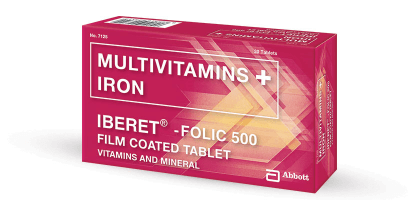
Blood booster iron supplement prescribed by doctors for pregnant women.3
